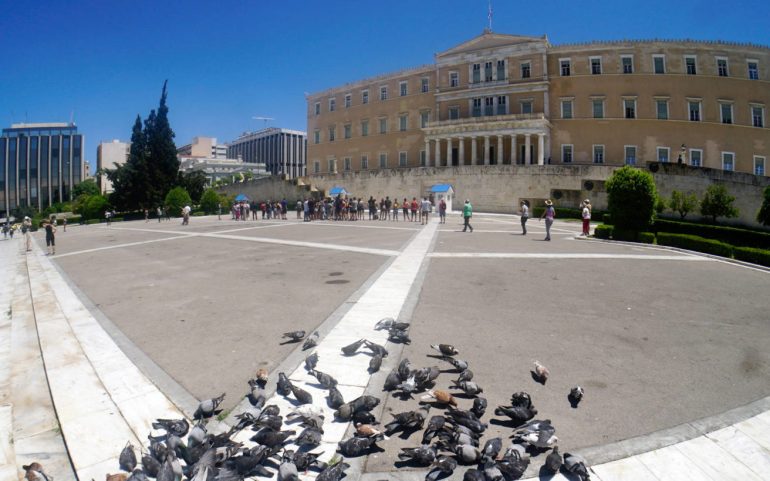The conception of democracy took place as we clearly learn from history, in ancient Greece and specifically in Athens, when Cleisthenes in 508-507 BC. decided to reform the then political system towards a fairer one. Modern parliamentarism was essentially taught to us by the English, who in 1649, led by Oliver Cromwell, executed King Charles I and established a democracy.
Swiss enlightener Jean-Jacques Rousseau, known for his proposals for social justice and equality, "teased" them English, who at the time were the only ones to have a parliament, and at the same time criticized their political system, saying: "The British think they are free one day in five years".
Greece in 2018 came out, if it has really come out, from a difficult process of almost ten years of economic crisis, which brought severe shocks to social harmony and its political life. A political life that, in order to get to where it is today, was problematic and conflicting in the pre-crisis years as well.
During the crisis, new party entities were born with the ambition to offer solutions to the deadlocks or to build walls of resistance to the policies that created them. To a large extent, the ventures came from splits or departures from the existing parties, giving the impression that they were distancing themselves from the policies that had been implemented. Perhaps the feeling that was created in the citizens was that in some way the old materials were simply recycled, aiming at the political survival of individuals or formations.
The European elections of May 26 are an indication of how many of these political formations were dealt with, as there were examples where substantial parties were decimated and found in a state of disintegration. But is this the conjuncture the closing of a historical cycle?
"The parties of the crisis"
From the day that George Papandreou announcing from Kastelorizo the recourse of Greece to the international support mechanisms, the country entered a vortex of crisis that brought inevitable shocks to its political reality. The reshuffles since then are many and somehow many party "births" started. Of course, in the pre-crisis years, there was a partial rearrangement of the political scene.
But let's take things in order or more clearly from right to left.
In the distant 2010 the then president of New Democracy Antonis Samaras deleted her Dora Bakoyannis because he voted for the first memorandum brought by PASOK. Thus, Ms. Bakoyannis created the Democratic Alliance, a project that lasted about 2 years, until she rejoined the SW.

To the right of the SW there was already the Popular Orthodox Alarm since 2000, which was founded by the also deleted from the SW George Karatzaferis. It is a party that preceded the crisis, but played a key role when it participated in the government of cooperation with Prime Minister Loukas Papademos in 2011. The percentage of 1,23% on Sunday actually brings LAOS to the end of a political cycle, with George Karatzaferis announcing his resignation from the party presidency.
In fact, Giorgos Karatzaferis found himself in the difficult position of seeing executives he promoted, leaving the party to go to the SW and follow other paths.

In 2009 the particularly dynamic in the creation of primary political formations Stefanos Manos announces together with the outgoing mayor of Thessaloniki Giannis Boutaris, Professor Thanos Veremis, the writer Nikos Dimou, the actor Konstantinos Markoulakis and the "known from the past" Vassilis Kontogiannopoulos the establishment of the political body "Action".
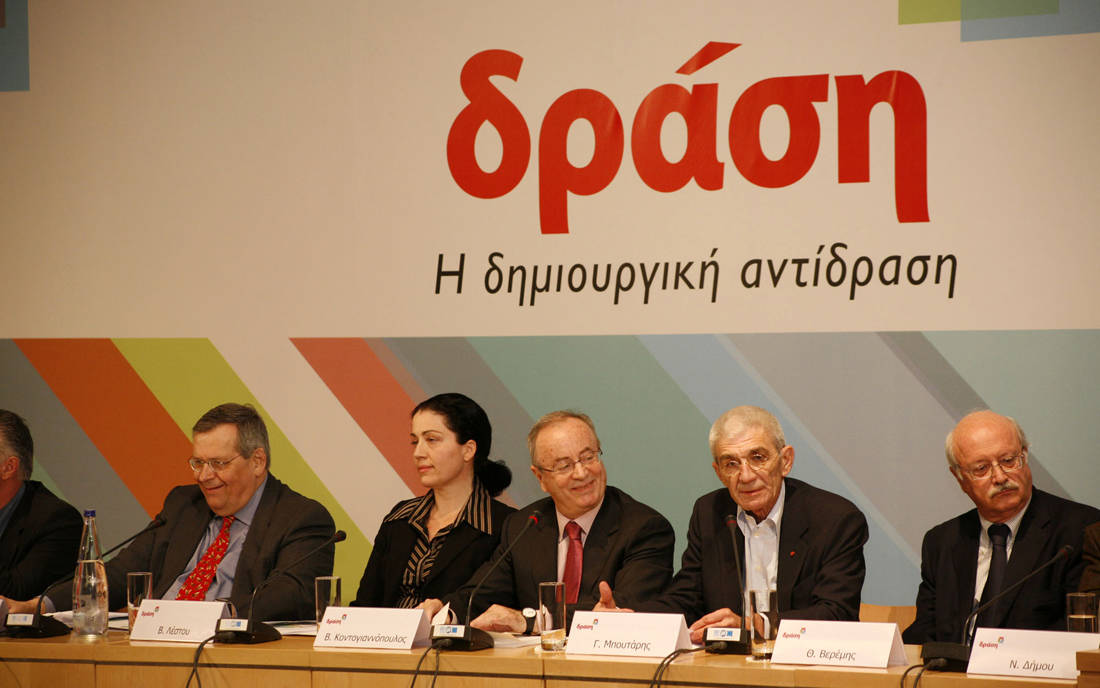
2011 o Thanos Tzimeros He founded "Dimiourgia Xana" and in the June 2012 elections, due to the low electoral percentages, he went down on a joint ballot with the "Action" and the "Liberal Alliance" which was chaired by Grigoris Vallianatos and was formed in 2007.
In February 2012, Panos Kammenos announces the creation of the "Independent Greeks", after secession from the SW, with the message "We are many, we are independent, we are Greeks". The coexistence of the party with SYRIZA in the government since 2014 and their departure a few months ago were key points in the course of ANEL, which in the European elections fell to 0,80%, having previously suffered leaks from MPs and executives and posed serious dilemmas for the future of the formation.

Many other efforts have been made to strengthen or embellish right-wing voters over the years. The now independent MP Nikos Nikolopoulos, who also left the ND, founded the "Christian Democratic Party" in May 2013.
In the spring of 2016, another new party premiered, the "New Right" of Failos Kranidiotis, with 0,66% in Sunday's European elections, while a few months later another party was founded focusing on the popular right, its "Greek Solution" former LAOS MP Kyriakos Velopoulos. It should be noted that K. Velopoulos managed to extract a percentage of 4,18% and to be elected MEP.
The "deconstruction" of PASOK
The first party to vote on the memorandum, the PASOK, inevitably suffered a major electoral blow and therefore underwent many changes, although it was not replaced by a similar political formation, but simply shrank. The Movement for Change therefore managed to emerge as the third force in the European elections with 7,72%.
PASOK lost executives and electoral power and went through a period of search. The same goes for the politicians who made it up.
George Papandreou, although he had been prime minister with PASOK, decided in January 2015 to establish the "Movement of Social Democrats" (KIDISO) which remained out of Parliament.
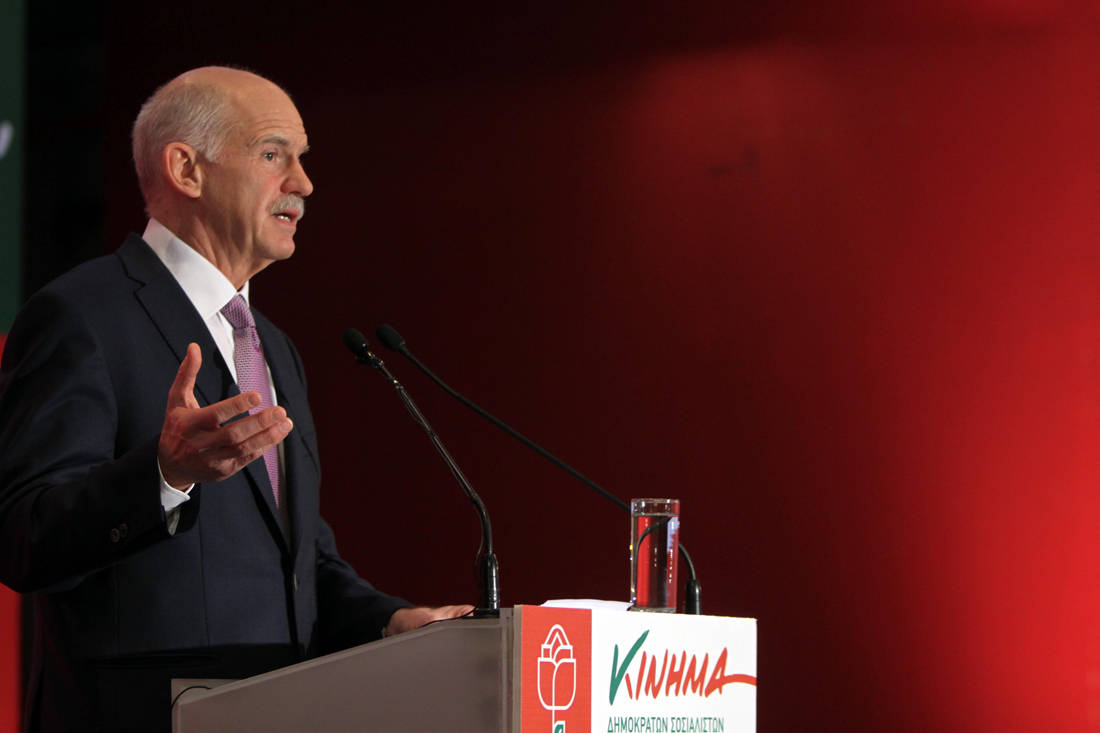
Ο Andreas Loverdos anticipating the developments, he founded in 2012 the "Radical Movement of the Social Democratic Alliance" (RIKSSY) in which it was heard that Michalis Chrysochoidis would also participate, something that did not happen in the end.
In the European elections of 2014, PASOK participated under the umbrella of "Elia" and after its collapse, PASOK entered the phase of Democratic Alliance, including a little from DIMAR.
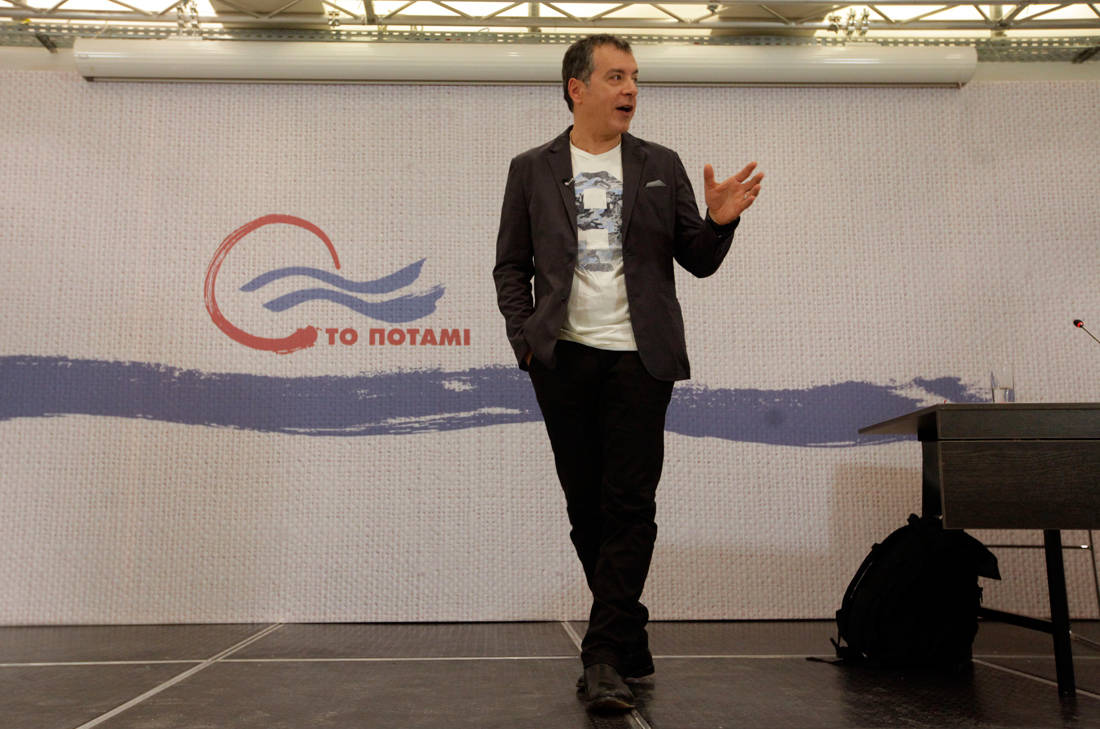
The second big player of the democratic progressive center, apart from PASOK, was of course the "River». The party founded in February 2014 by journalist Stavros Theodorakis, managed to enter Parliament and record a strong public presence, until it reached 1,52% in the European elections, a result which led to the departure of Mr. Theodorakis from his leadership.
What happened to the Left
The Left has also undergone many transformations, which is not unusual for this particular political space.
The ruling SYRIZA started the era of memoranda as a relatively small party, with an almost constant presence in parliament. In June 2010, under the leadership of Alexis Tsipras, it underwent a significant split, as many executives of the so-called renewal wing left, led by Fotis Kouvelis, who founded the "Democratic Left". The new party participated in a government of cooperation with PASOK and ND, but left after the "black" on ERT by Antonis Samaras.

Today, the Democratic Left probably belongs with Fotis Kouvelis being its Minister of Shipping. SYRIZA and those who are left in the party to be between KINAL, SYRIZA and an autonomous march.
A large number of executives resigned from the ruling SYRIZA in 2015, including Panagiotis Lafazanis and Zoe Konstantopoulou, who created "Laiki Enotita" and "Plevsi Eleftherias" respectively. LAE won only 0,56% in the European elections, with Mr. Lafazanis taking responsibility for the result, while Ms. Konstantopoulou's party won 1,61%.
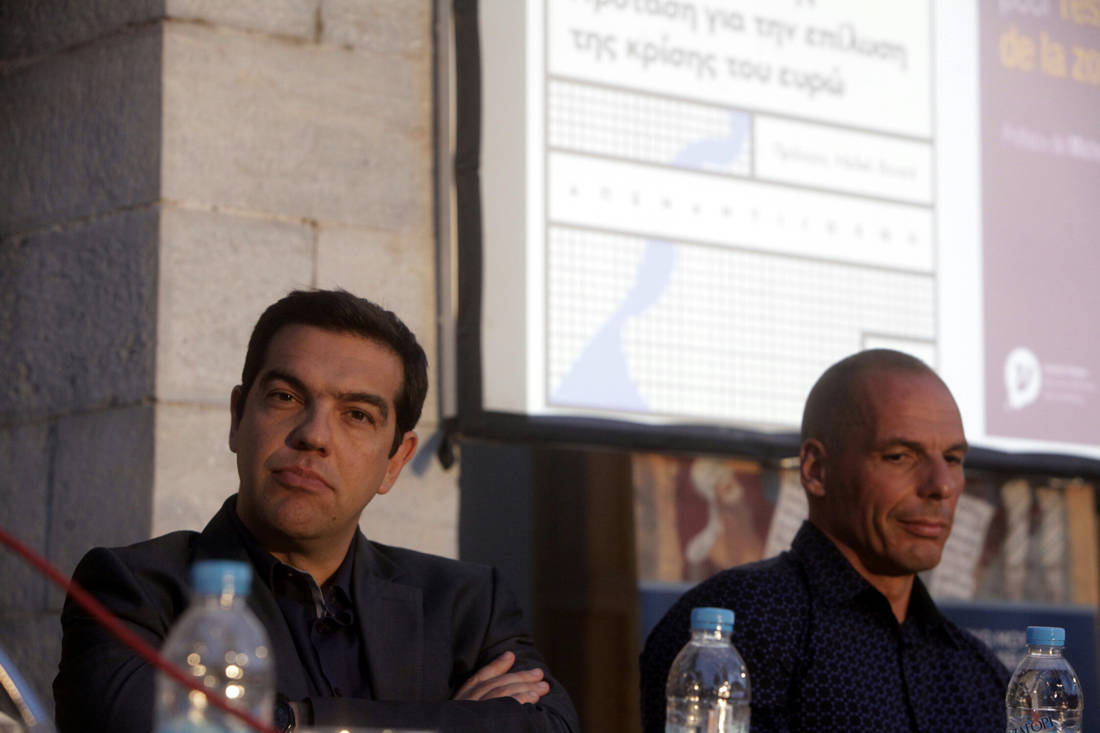
Among the exceptionally prominent executives that SYRIZA lost is: Yanis Varoufakis who founded "DiEM25" as a pan-European political movement for democracy in the European Union, making the big surprise in the European elections with 2,99% and losing for a while the representation in the European Parliament.
"There is a crisis of representation in Greece"
To better understand the phenomenon, we turned to the professor of Political Science, Michael Spourdalakis. "The riots in the parties had taken place long before the crisis, with the result that when the crisis came, things accelerated. Whenever there is a crisis of representation, new forms are created which are mortal or have a very short lifespan. Because they integrate or fail or fail to find a foothold in society and lead to crisis, extinction or partnerships that have or do not have perspective.

We have many examples. Do not forget the Political Spring, until the removal of high-ranking officials from parties, such as for example from the New Democracy the case of Baltakou, which is now in the Independent Greeks.
Another dimension of these new parties is the degradation of politics, in a satirical way, the degradation of the political process. This is the case in many countries. "I'm not talking about the 'Pirates', but there are cases like 'Youth Party', a party of anyone if you will."
- Did the European elections show that the phenomenon is receding?
"I do not think the crisis has calmed down. There are markedly different interests in society that are expressed through different political choices. In many cases they coexist in the same parties. In fact, when a party is or considers that it is close to power, it unites. If it fails, this can have negative or even disruptive effects. That is why we have frequent changes of leadership. We are in a phase that is going to consolidate the party scene, but there is still great uncertainty. "
As for the result of the European elections, Mr. Spourdalakis told us:
"All the parties, including the ruling party, have been able to turn second-tier elections - intentionally or unintentionally or through a misguided political strategy - into first-tier elections. Everyone knows that these elections do not produce a government. From there and beyond we already knew that small parties had been liquidated, such as Potami, ANEL, the Union of Centers. Otherwise all these parties to each other. There was a phenomenon of 1 in 5 voters voting for parties that did not even have the hope of electing a representative to the European Parliament. That fact must be taken into account. "
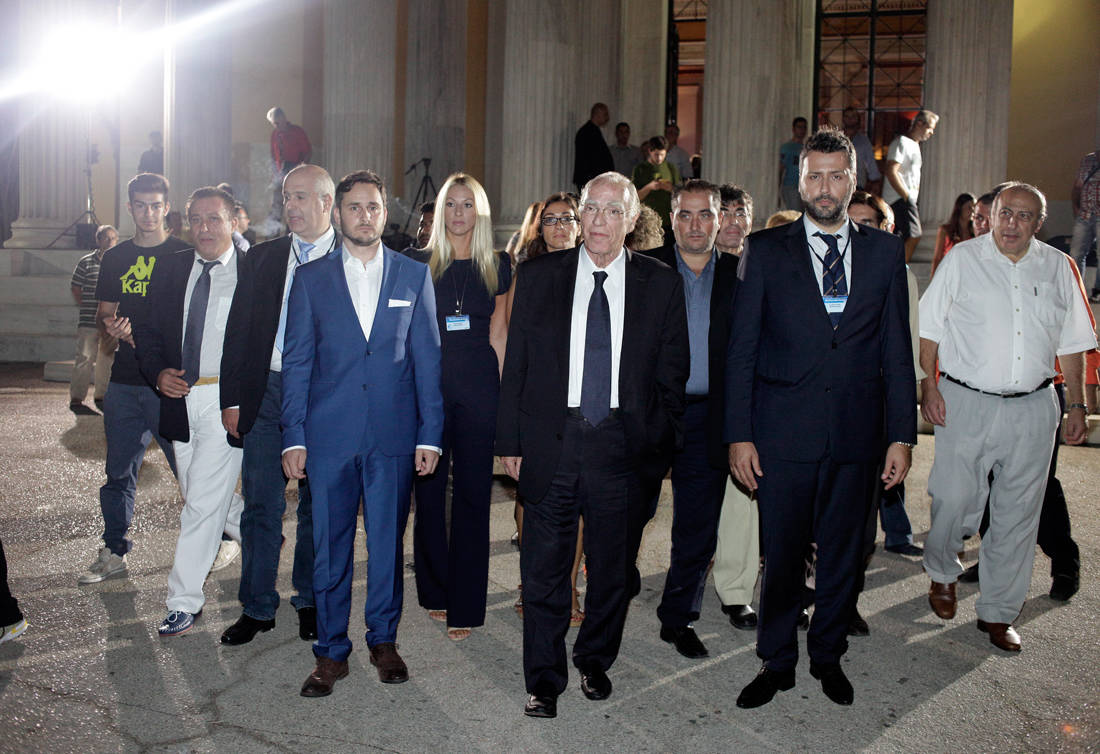
It is noted that the Union of Centers scored 1,45% in the elections and its parliamentary group was dissolved, after the independence of MP Giannis Saridis.
Mr. Spourdalakis also referred to Chrysi Avgi: "On the other hand, we had the pleasant phenomenon that the neo-Nazi party of Chrysi Avgi lost about 50% of its power from the previous European elections. However, the extreme right in our country has not decreased dramatically. Of course it is of a different type. It is a populist, racist current. Mr. Velopoulos got about 4%, and counting the New Right and one or two other small parties, we see that compared to 2015 overall the far right has lost a small percentage. So it is not a significant setback. We should keep this in mind, and although Velopoulos has nothing to do with the raiding battalions, he remains a far-right party. "
- Why are people turning to these solutions?
"People are looking for easy solutions to complex problems because they are desperate. People seek to connect with the political system, while in Europe and here it seems distant, indifferent and seems to implement policies based on premeditated decisions. This frustrates the citizens, alienates them and leads to simplistic, populist choices. That is, complex problems are treated as if no one can solve them easily. This is the crisis of representation. "
